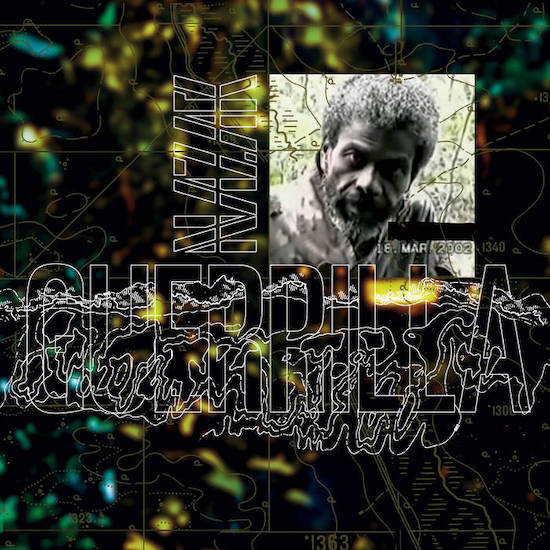Nazar is 26 years old. In that time, he’s survived civil war – in which his father was a Rebel General – in his native Angola and lived as a refugee in Belgium, before eventually settling in the UK. With an upbringing and young adulthood like that, inventing and self-defining a new genre of music sounds like a piece of piss.
That’s what he decided to do with his debut album, Guerrilla. From his home in Manchester, Nazar has created an astonishing, utterly distinctive record that does indeed occupy a very singular artistic space. Whether it represents a truly new style of music is perhaps up for debate, but it’s certainly true that this stuff – for which he has coined the term “rough kuduro” – sounds like little else.
Yes, one can identify a few constituent parts, trace the shadows of various influences here and there, but when consumed as a whole, Guerrilla is a singular experience. Through the feverish blur that lingers around most of the LP, snatches of the familiar are occasionally audible: footwork and breakbeat clearly inform much of the percussion, for example; tracks like ‘Fim-92 Stinger’ nod towards early house and techno, though their danceability is constantly disrupted by bursts of noise and dissonance; vocal samples and field recordings provide the record’s underlying humanity even as they’re warped and inverted beyond recognition.
It’s tempting to describe the sound of this music as impressionistic, such is the diversity of its textures and the fleeting, disorientated nature of many of its central motifs. ‘Immortal’, for example, is propelled along by a breathless synth melody that sounds like little more than a panicked warning, panted and half-intelligible from someone stampeding past you through a crowd. Yet to talk about Guerrilla in any terms which imply its meaning is somehow vague or abstracted is to do it a disservice: this is a record with conflict, displacement, trauma, and tension woven into every seam, and all the more powerful for it.


